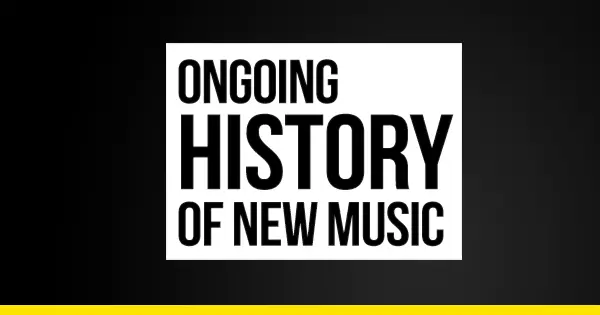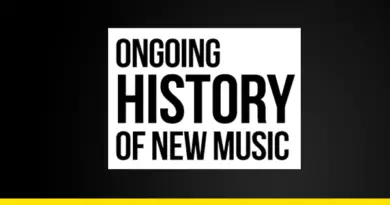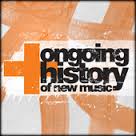
The Ongoing History of New Music, encore presentation: The Diversity Show [Music and Podcast Embedded]
Here is a truth that some people find very uncomfortable: rock, alt-rock and indie rock are predominantly white. Why is that?
The answers—and there is more than one—are complicated. There has actually been a quite a lot of study on this question.
Perhaps its because non-white people don’t choose this music as part of the way they project their identity to the world. Culturally, they just don’t identify with these forms of music, so they naturally gravitate somewhere else.
Others ask how this is different from someone choosing the music of their culture and ethnicity over that of another. If you’re Italian, for example, chances are you will have a greater affinity to Italian music than you would, say, gamelan music of Bali.
Here’s another truth: any form of music tends to reflect the shared sentiments of a particular community. Compare indie attitudes with hip hop. An indie band wouldn’t think of singing about drinking Cristal in the back of a Maybach while discussing the size of the diamonds in their new grillz (Let’s leave Lorde’s “Royals” out of this for now.) Neither would a hip hop artist rhapsodically describe their new pickup. Neither would a rock band, for that matter.
Each form of music has its own aesthetics and appeal. If they don’t mean anything to you on a cultural or emotional or personal level, then you’re not going to be into that music—at least to the level where you’re going to write and perform it.
Others don’t buy into this, seeing the non-whiteness of rock as a status quo barrier to people of colour who would like to participate but feel excluded and unwelcome. They also see countless micro aggressions, covert expressions of racism and continued cultural appropriation.
We’re not going to solve any of these issues on this program. But I would like to acknowledge the contribution people of colour have made to the evolution of alt-rock.
Alt-rock is pretty white, yes—but not always. And we’re all luckier for it.
Songs used in this show:
- Death, Keep on Knocking
- Bad Brains, Pay to Cum
- The Specials, A Message to You, Rudy
- English Beat, Tears of a Clown
- Fishbone, Ma and Pa
- Living Colour, Cult of Personality,
- Body Count, Body Count in the House
- Cornershop, Brimful of Asha
- MIA, Paper Plans
Eric Wilhite, the official playlistist, has come up with this.
Don’t forget that you can get the podcast version of this podcast through iTunes or wherever you get your on-demand audio.
The Ongoing History of New Music can be heard on the following stations:
- 102.1 The Edge/Toronto – Sunday night at 7
- Live 88-5/Ottawa
- 107.5 Dave-FM/Kitchener
- FM96/London – Sunday night at 7, Monday night at 11
- The Drive/Kingston
- Power 97/Winnipeg (Sunday nights at 11)
- 98.1 The Bridge/Lethbridge – Saturday night at 6, Sunday morning at 10am
- Rock 97.7/Grand Prairie – Sunday nights at 6.
- 92X/Calgary
- Sonic 102.9/Edmonton
- The Zone/Victoria
- The Fox/Vancouver
- Live 105/Halifax
- NEW! WAPS/WKTL The Summit/Arkon, Canton, Cleveland, Youngstown
We’re still looking for more affiliates in Calgary, Kamloops, Kelowna, Regina, Saskatoon, Brandon, Windsor, Montreal, Charlottetown, Moncton, Fredericton, and St John’s and anywhere else with a transmitter. If you’re in any of those markets and you want the show, lemme know and I’ll see what I can do.




University of Windsor’s philosophy professor, Ralph Johnson, argued that rock music was the music of a folk. While all cultures can enjoy it – in the same way we can enjoy the music of very different cultures/folk – it “speaks” to and about the shared experiences of a predominantly white audience. This should be viewed as neither good nor bad but just fact.